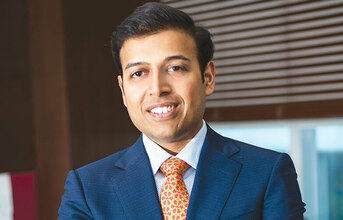
How is the automotive market faring in India? How do you look at the BS VI regulations that are to be implemented from next year?
Presently, the Indian automotive industry is at an inflection point where both opportunities and challenges abound in equal measure. The industry is trying hard to evolve and focus on new technologies, including transitioning to BS-VI. The auto industry is up to the challenge in view of the rising concerns on vehicular pollution, especially in urban metros. The Indian Automotive industry have been working for a long time to improve vehicle efficiency & safety and reduce emissions with an aim to consequently lower ownership cost, adhere to emission & crash standards and conserve natural resources.
Globally, the trend of light-weighting is seen in the industry for few years now. What impact does it have on auto component manufacturers? How have you been helping OEMs achieve success in this area?
The industry has been relentlessly working towards light-weighting with an aim to enhance vehicle efficiency without compromising on the quality. We have been pioneers in introducing TWBs (Tailored Welded Blanks) into the market that effectively aid in reducing the weight of the component or the assembly keeping the quality and strength intact. JBM has been working on this technology for over a decade now and has been assisting OEMs significantly to this effect. Apart from this, we are also working towards incorporating usage of alternate materials like aluminium, carbon fibre, etc. by virtue of our various global alliances.
Also, there is an increasing trend towards going green in the automotive industry. How do you look at it?
JBM is consciously working towards providing ‘Well to Wheel' solutions, wherein, we have developed in-house, end to end capabilities in the e-mobility domain right from generation to consumption of green energy in powering e-vehicles. With strong focus on R&D, we have brought about a paradigm shift from the way JBM is perceived - from a product company to a solution giving company. JBM, a one-stop solution provider in the Electric Vehicles segment by offering complete ecosystem solution for E-mobility i.e. Electric Bus, Battery Technology, Charging Infrastructure and Operating Pattern. This has enabled JBM to offer seamless customer experience. JBM ECO-LIFE, a Zero Emission Vehicle (ZEV), will save around 1000 equivalent tons of carbon dioxide and 350,000 liters of diesel over 10 years of operation. This is a huge evolution from how public transportation operates in India.
Now that e-vehicles are penetrating globally, how has been the response for JBM's electric buses?
JBM has been a frontrunner when it comes to the e-vehicle domain, with a strong focus on providing an end to end solution for EVs in India. We have added segments and verticals that highlight our focus on electric vehicle adoption. We introduced India's first 100% electric buses, ‘ECO-LIFE' in association with our European partner Solaris Bus. These buses have been manufactured, tested and homologated completely in India under the ‘Make in India' programme.
In fact, our electric bus ‘ECO-LIFE' has successfully completed a trial runs recently conducted by multiple cities across India including metros like New Delhi and Mumbai. As part of this path-breaking product innovation, our focus was not limited to making a 100-electric bus; but we focused on building the entire ecosystem for adoption of EV by also building EV charging stations. In addition to our product line, our decision to emphasize on projects in the renewable energy space, puts us in a unique position to both benefit and support the new technologies market. Thus, JBM is positioned to provide complete green ecosystem solution.
How has been the last year for JBM Group? How do you look at this year?
JBM has been adopting the blue ocean strategy to ensure that we are ahead of competition. We evolve and constantly innovate which is what makes us agile. We started with a focus on auto components, which shifted to auto systems and assemblies. And, as we started moving ahead, we began adding new verticals and segments to our business, which is what has made us what we are today. We focus on the TCO (Total Cost of Ownership) principle for driving optimum value and cost optimization from our products & solutions thereby improving on its lifecycle cost. All our business verticals work in sync that provides us a sustainable and scalable ecosystem. Simplifying the hi-tech approach and making it user friendly and affordable is what we strive for. This year, we wish to expand our market by upgrading our capabilities and delivery mechanism, besides inducting technology and driving innovation to ensure value creation for self, business and the society at large.
END


























